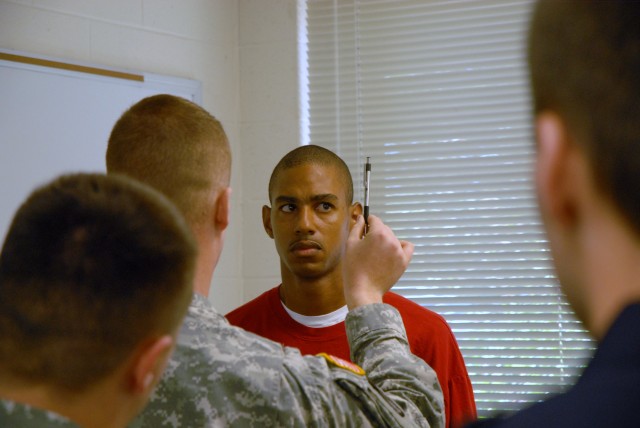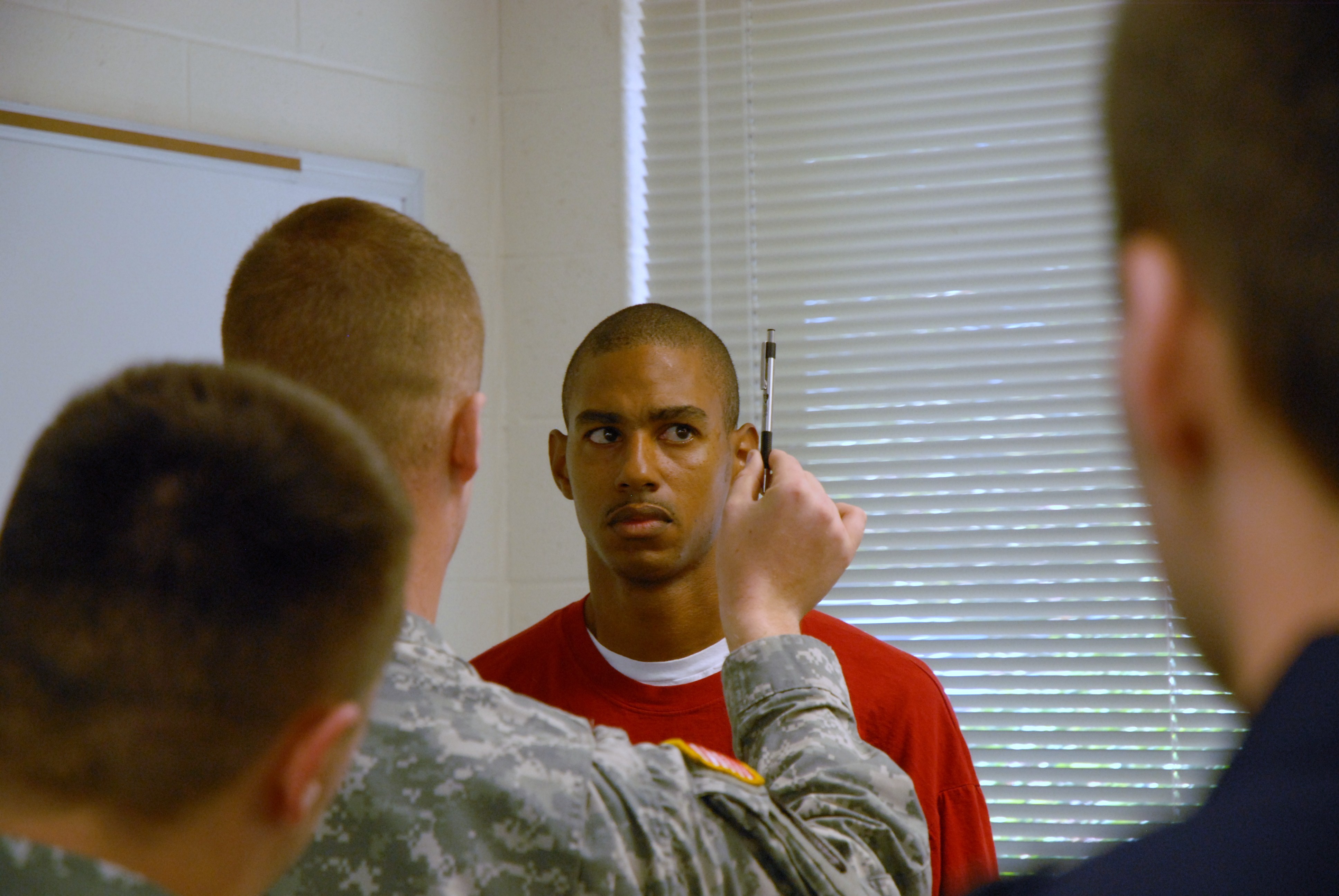
FORT JACKSON, S.C. -- Getting drunk while on duty is usually asking for trouble. But for several Soldiers who volunteered for a special assignment, it was all for a good cause.
The Soldiers were part of a weeklong course that trained law enforcement officers how to spot impaired drivers.
"I think it's important to help out these police officers and help make our roads safer," said Maj. Donald Baker, executive officer of the 2nd Battalion, 60 Infantry Regiment. "I don't usually drink. And if I do drink, I certainly don't drive."
Baker was one of three officers and Soldiers who volunteered to help with the training last week, which was held at Fort Jackson and sponsored by the South Carolina Criminal Justice Academy.
Thirteen officers took part in the training, including 10 Fort Jackson military and civilian policemen. Two Richland County Sheriff's Office deputies and one Forest Acres Police officer also took part.
The course combined classroom lectures and practical exercises such as using volunteers to learn how to spot the signs of an impaired driver, as well as conduct field sobriety tests.
"Using people who have actually been drinking is one of the best tools you can use for this type of training," said Spc. David Beaton, a member of the 17th Military Police
Detachment who trains new MPs on how to conduct field sobriety tests. "This is probably the most important part of the training."
Wayne Harris, an instructor with the Criminal Justice Academy, said the training gives new officers a chance to make sure they know what to look for before they hit the roads to make actual DUI stops.
"We're trying to build their confidence," Harris said.
The volunteers were given drinks containing alcohol for several hours before the officers began practicing their observation and testing techniques.
Harris said the volunteers were given enough alcohol for their blood alcohol content to just barely reach 0.08 percent, the legal limit in South Carolina, but not so high that they were obviously impaired.
"If somebody's falling down drunk, that's not a challenge for the officers," Harris said. "We want them to be forced to make hard decisions regarding whether someone is impaired or not."
Another Criminal Justice Academy instructor, Jim Crosland, said the course certifies officers to conduct the three most common field sobriety tests.
Crosland said it is important for officers to be proficient in getting impaired drivers off the roads because South Carolina is second highest in the nation for alcohol-related traffic fatalities.
"About 52 percent of all our traffic fatalities are alcohol related," he said.
Fort Jackson police officer Terrance Crawford, a DA civilian, said the training definitely made him more confident in his ability to handle an alcohol-related traffic stop.
"It helps you to be more knowledgeable about what to look for," Crawford said.
Staff Sgt. Robert Landes, operations sergeant for the Directorate of Emergency Services, said the training ultimately is about protecting people.
"It helps us provide a more fully equipped police department for Fort Jackson and keep the people who live and work here safe," he said.

Social Sharing